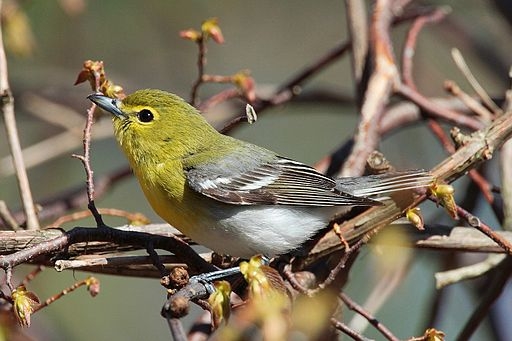
Researchers have confirmed through a new study that the West Nile virus is continuing to wipe out the bird populations in the U.S.
The researchers warned that this trend could worsen the death rates of the animals by adding to the effects of increasing temperatures and habitat loss, Science Mag reported.
For the study, the researchers examined 500 stations in the U.S. from 1992 to 2007. These facilities are where birds are regularly trapped and banded. During the course of the study, they were able to 49 species of birds.
Based on their findings, 23 species, which account for 47 percent of the study's subjects, were affected by the mosquito-borne West Nile virus. The researchers noted that the disease had a huge impact on the birds' populations.
For instance, before the outbreak, the red-eyed vireos had an estimated population of 130 million. But due to the disease, 37 million of them died. However through their observations, the researchers discovered that the disease had various effects on the birds.
In the case of the red-eyed vireos, despite the huge loss in its population, the die-offs seemed to stop a year after they were affected by the virus. This suggests that many of them were able to recover from the disease and even develop immunity against it.
But, there are still bird species that are failing to recover from the disease. One of those is the warbling vireos, which lost 8.7 percent of its entire population due to the virus. But instead of recovering like the red-eyed vireos, more warbling vireos kept dying through the years following the outbreak.
"Seeing the disease's persistence was a shock," Ryan Harrigan of the University of California, LA and co author of the study said in a statement. "We don't know why these species are unable to recover. It's alarming."
"It's not that it wasjust an 8.7 percent decline one year; it's an 8.7 percent decline on that smaller population the next year, and the year after that, so the effect is compounded," he added.
According to the researchers, the varying effect of the virus on the birds may have something to do with their habitats. Some bird species that lived near humans were greatly affected by the virus but others that lived in the same type of area fared well against it. This is possible because they had more access to alternative source of food, Fox News has learned.
Still, the researchers are still puzzled regarding the exact reason behind the effects of the virus on the birds. Other scientists who were not involved in the study recommend conducting follow-up reports in order to learn more about the disease.
But, whatever the reasons are, the study still indicates the huge ecological impact of West Nile virus on the birds. It also shows how the disease is starting to join the ranks of habitat loss, pollution and warming climates as factors that threaten the survival of birds in the U.S.
The study carried out by the researchers was published on November 2 in the journal Proceedings of the National Academy of Sciences of the United States of America.














